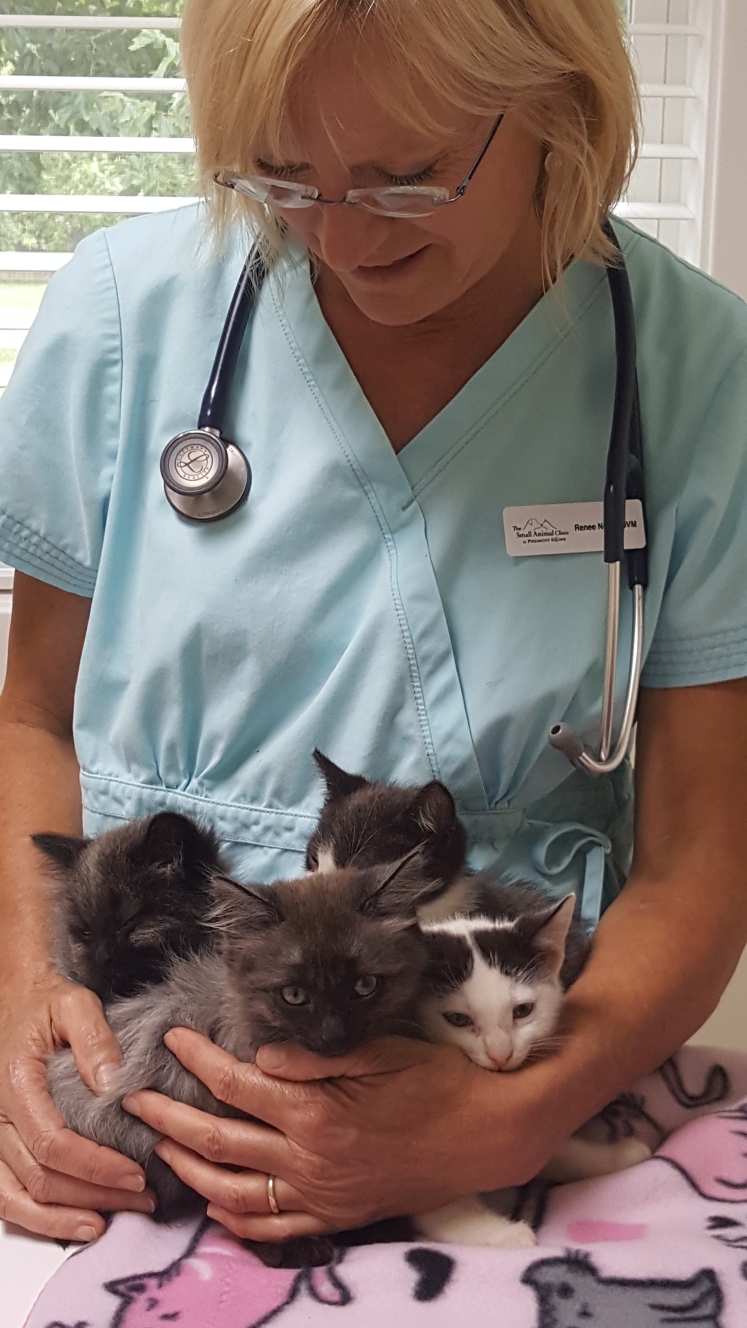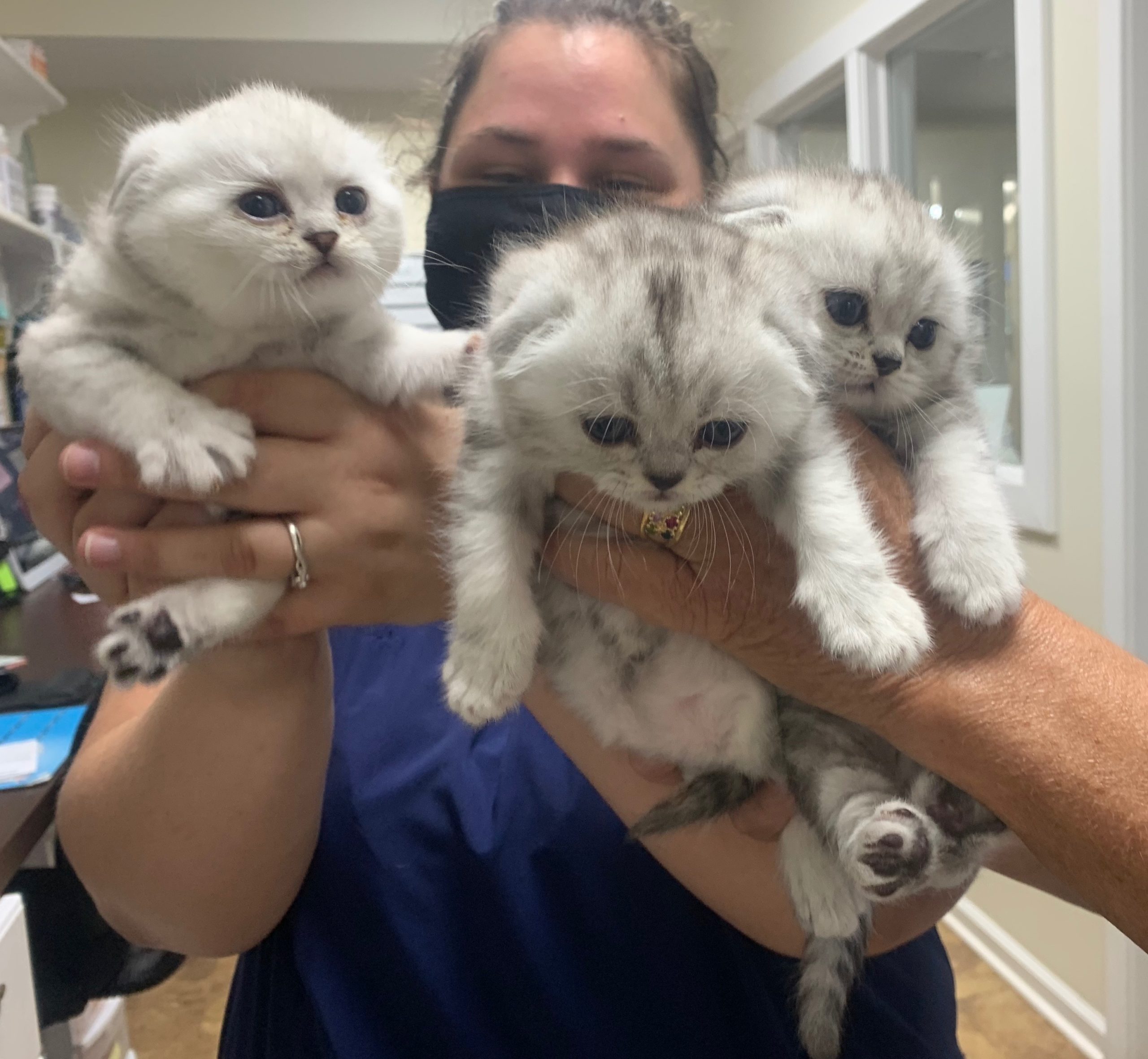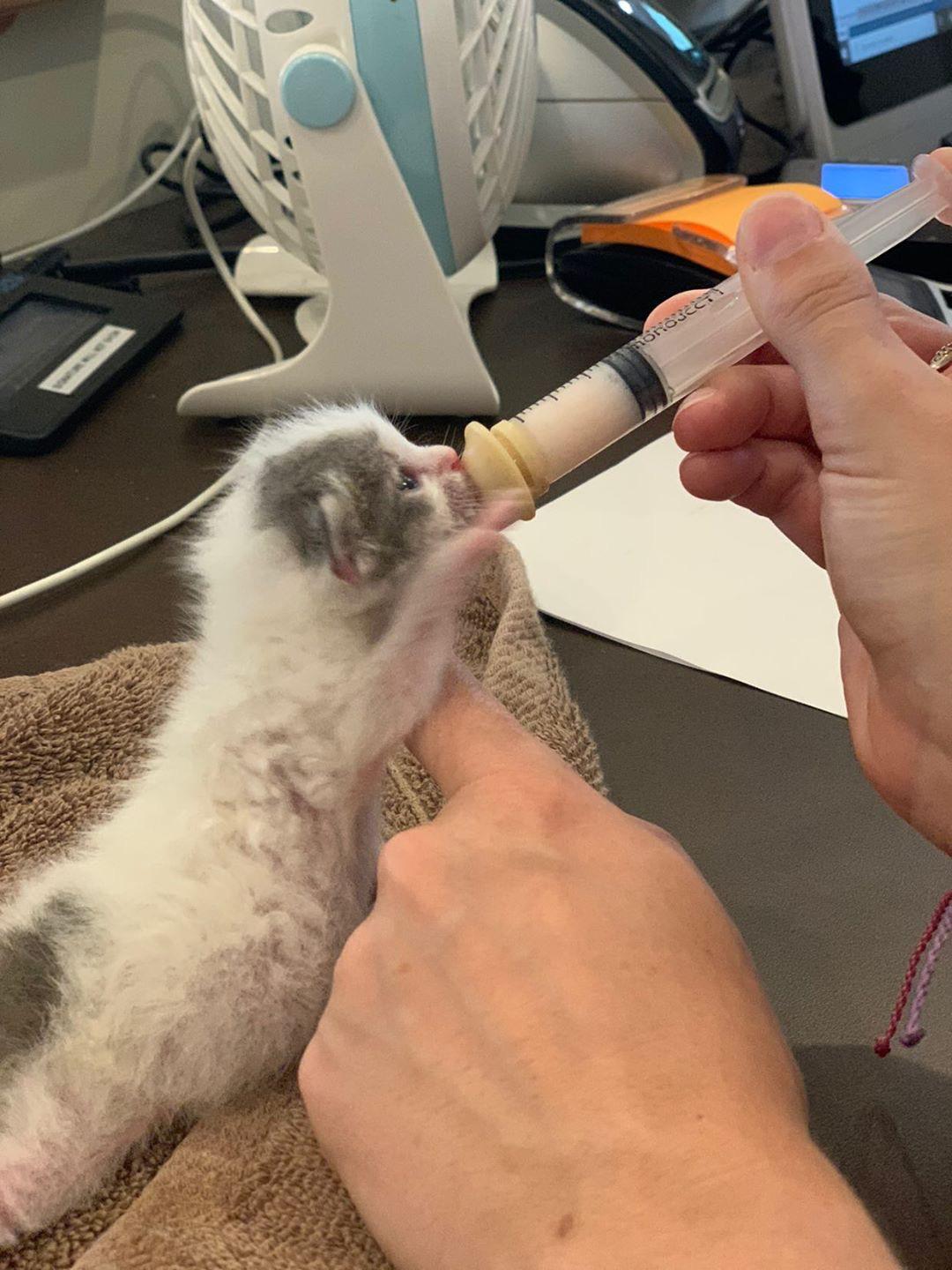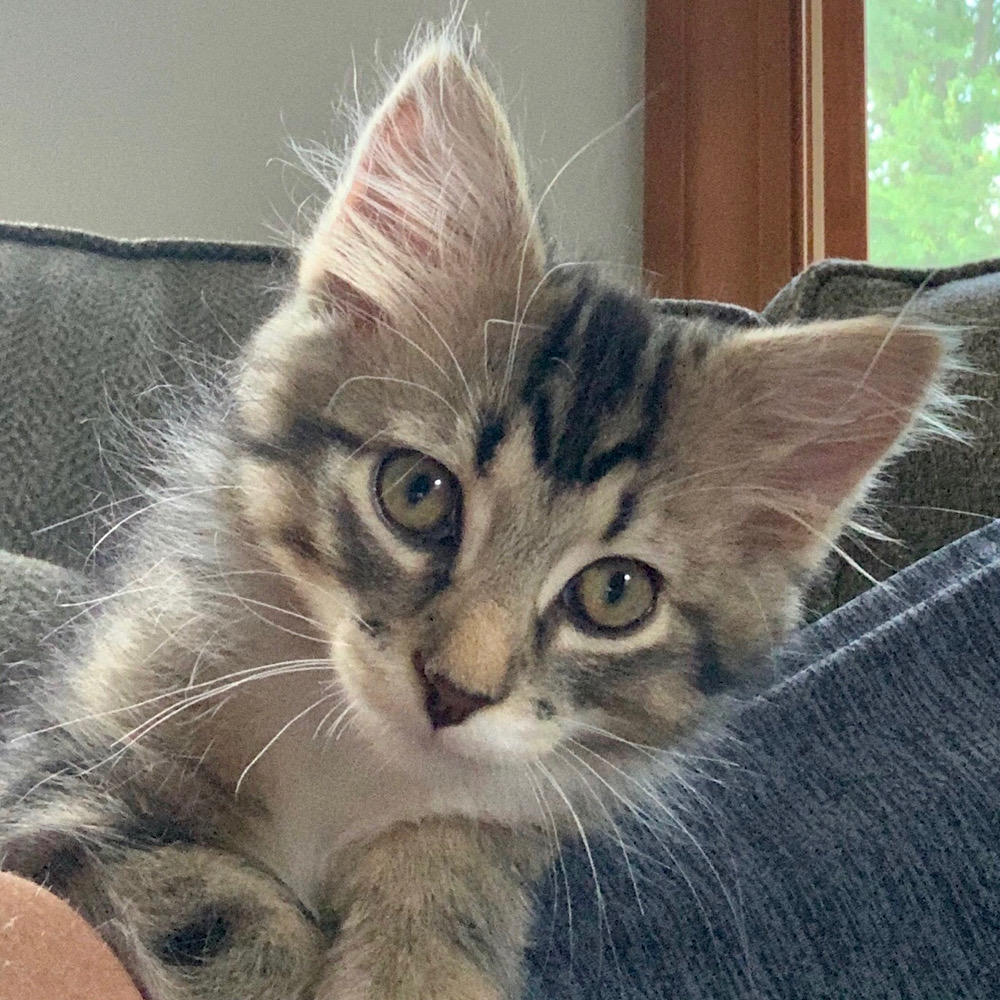Congratulations on your new kitten!
We wish you a long happy relationship, with all the joys of a cat’s graceful companionship and love. We hope that your kitten grows into a confident cat, able to cope with the inevitable stressors of life. Help your cat be prepared to handle things like the addition of new pets, home improvement projects, vet visits, food changes, taking medications, moving households, car rides, visitors, your absence during vacation… without reacting with anxiety, fear, and urinating outside of the litter box! How can you make sure your adorable new kitten becomes a cool cat and not a scaredy-cat?
Socialize them!
But what exactly does that mean? The answer lies in the extraordinary ability of the young kitten to take in and make lasting impressions about the world around them. Kittens are naturally curious but grown cats are naturally cautious and automatically categorize anything unfamiliar as threatening. Your kitten should be offered a wide variety of opportunities to explore and to interact with different people, animals, sights, sounds, and activities. And that’s where we come in!
Our job is to introduce our kittens to everything they will or even might encounter in their adult lives in a positive way. How do we make things positive for kittens? Basically by giving them food! Food is good. Play is good. Food and play make new, potentially scary things good. Pairing novel things with food and play generally make kittens happy with that novel thing.
The key is to have a purposeful program of daily practice including handling, introducing new people, animals, foods, sights, sounds, and activities. Use a kitten socialization checklist and practice one item daily. Be savvy. Watch to make sure your kitten stays relaxed, if she shows signs of fear or stress, stop, slow down, and introduce the new activity or thing more slowly. Make every introduction fun.
Kittens should be trained to willingly enter their carriers, just like puppies are crate trained, just like horses are trailer trained. Carriers should be part of your kitten’s everyday routine. They should be a place to rest and be the place where your kitten can find treats or is fed.
Train your kitten to accept medication by giving them a soft treat, (like a piece of Pill Pocket) twice a day. That way if you ever need to medicate your cat, hand them their favorite daily treat loaded with the pill and watch them gobble it down!
Avoid the “picky eater” by giving small amounts of different textured, shaped, and flavored foods. Mother cats teach kittens how to hunt and thereby teach them what is safe to eat. If you feed kittens only one food, they will naturally avoid all other foods as adults.
Up to ninety percent of cats will have inappropriate urination at some point in their lives. Barring a medical condition, think of this as a signal, a “peemail” if you will. This is a cat’s signal that they are experiencing stress, anxiety, or fear. A well-socialized kitten is far less likely to experience stress, anxiety, and fear. To avoid this common problem of inappropriate urination, socialize your kitten and enjoy your friendly, happy cat!
For more information on kitten socialization, check out these sources
The San Diego Humane Society Kitten socialization checklist.-
Purchase and watch the video, “Kitty Kindergarten, Creating the New and Improved Cat Through Socialization” by Sophia Yin
Fear Free Kitten Socialization Checklist from fearfreepets.com
“Think Like a Cat, How to Raise a Well Adjusted Cat – Not a Sour Puss” Pam Johson Bennett
Here are some commonly discussed topics. Please feel free to ask our doctors and staff any questions you might have about your kitten.
- Socialization – Prioritize this key topic for your kitten’s future health and happiness.
- Retrovirus testing – What is this? A recommended blood test to check for Feline Leukemia Virus (FELV) and Feline Immunodeficiency Virus (FIV). These are viruses that may be passed on to kittens by their mother.
- Fecal Testing – What are we doing? Looking for microscopic evidence of parasitic organisms. Why are we doing it? To help make sure your kitten is free from parasites and so not able to infect other pets or people, or to contaminate the environment. To look for organisms not typically treated by common kitten worming medication, and to make sure the worming medication has successfully cleared a previous parasitic infection.
- GI Parasite control- Most kittens have some worms and should receive a minimum of 2 doses of worming medication.
- Vaccines – Kittens receive vaccinations every 2-4 weeks until at least 16 weeks of age. Your kitten will receive vaccines based on lifestyle and risk factors. New vaccinations guidelines require a further booster at 6 months of age.
- Microchip – Less than 5% of lost cats are reunited with their owners. Increase these odds with a microchip that provides secure, reliable, and permanent identification. If your kitten already has a microchip, make sure it is registered to you and update it in the case of moving or a new phone number.
- Parasite prevention – Monthly medication and/or Seresto collars should be provided year-round to protect against fleas, ticks, Heartworms and GI parasites.
- Timing of spay/neuter – 5 to 6 months of age.
- Litter box training/litter box rules – Use a large box, use unscented clumping litter, have 1 box more than the number of cats in the household and separate the boxes into different areas within the home. Scoop daily, change weekly, and clean monthly.
- Diet – Offer a variety of kitten foods early on to avoid picky eating later. Train your kitten to easily accept pills if needed in the future. Offer a piece of Pill Pocket or other soft treats twice a day.
- Visit the American College of Veterinary Nutrition (acvn.org) or petfood.aafco.org for frequently asked questions about feline nutrition. Also, check out “no bowl” feeding systems and forage feeders.
- Dental Care – Start early with Veterinary Oral Health Council approved products (vohc.org) Practice by gently rubbing your kittens teeth and gums,then move up to oral wipes.
- Grooming/handling/nail care – Practice brushing and nail trimming with short sessions daily and with lots of praise and treats. Gently handle all body parts, including ears, mouth, feet, and tail.
- Environmental enrichment – Go to AAFP and ISFM Feline Environmental Needs Guidelines
- Pheromone use – For calming, introducing new cats, and keeping peace within a multi-cat household, Go to Feliway.com
- Pet Health Insurance – As more people consider pets part of their family, the quality and options in veterinary care improve. However, as a result, the cost of veterinary health care is increasing. Consider a pet health insurance to protect your pet and your finances in case of unforeseen accidents or illnesses. Do you need pet insurance?
For information about caring for orphan kittens, go to kittenlady.org or info@kittencoalition.org





